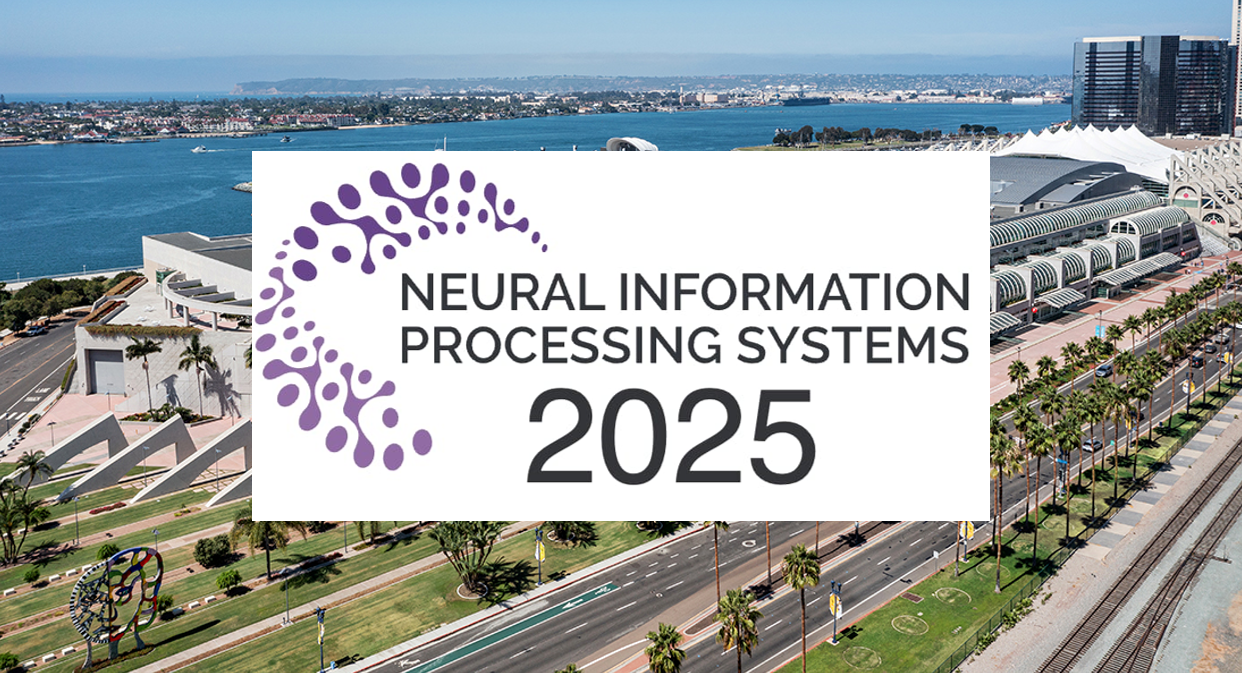Today the Government of Canada announced the Canadian AI Sovereign Compute Strategy, a $2 Billion+ program to support the increasing compute needs of Canadian AI companies and researchers, and to drive AI adoption in Canadian businesses. It is an important commitment that builds on a deliberate strategy to ensure Canada is a global leader in AI development and, critically, AI commercialization and business adoption.
Canada was the first country to launch a national AI strategy – the 2017 Pan-Canadian AI Strategy (PCAIS). This new federal budget commitment today builds on the foundations that were laid in 2017 by PCAIS, which focused on growing AI talent in Canada to a critical mass of AI researchers, professors and industry practitioners necessary to build an AI talent pipeline to support AI-enabled company expansion and product development. In other words, PCAIS began the work of turning Canada’s early research leadership into a leading research and commercial AI ecosystem, with extraordinary AI talent at its core.
PCAIS continues to be a globally emulated success. Canada is home to world-leading AI research institutes, co-founded by AI pioneers Geoffrey Hinton (Vector Institute for AI in Toronto), Yoshua Bengio (MILA in Montreal), and Richard Sutton (AMII in Edmonton). Canada quickly reversed an AI brain-drain and became a magnet for research talent and professors who produce among the greatest concentration of AI talent in the world, and spun out world-leading AI companies like Cohere, Waabi, and many more.
To scale AI businesses, however, takes more than just incredible talent. New foundation models, including Large Language Models, are produced using vast amounts of data and AI compute. The largest machine learning models today require 10 billion times as much compute as 10 years ago. The corresponding demand for AI compute has led to shortages in advanced chips, and a ‘Game of Thrones’ like battle among companies to secure sufficient chip supplies to satiate their needs. We expect AI compute and supporting AI infrastructure demand to grow significantly as the capabilities of such models increase, and as AI moves from model training into software deployed globally across industries.
Recently the global AI race has accelerated and extended from companies to nations: multiple countries have announced their own national AI strategies to support their domestic AI companies, talent, data, and access to compute in the face of global supply constraints. A recent report from Tortoise Media found that Canada’s rank on AI infrastructure dropped from 15th to 23rd from 2021 to 2023, out of the 61 countries ranked in the report. Canada’s overall global AI ranking fell from fourth to fifth, and this decline was attributed primarily to its lack of AI infrastructure (i.e. lack of access to domestic compute).
Canada is a leader in the development of AI talent, technology, and tools. But without affordable access to high-performance chips that are essential for the development of next generation AI technologies and companies, other nations will continue to erode Canada’s leadership position. This is why today’s announcement is so important.
This new program announced today by the Government of Canada supports the compute needs of Canadian AI companies and researchers, and encourages AI adoption by Canadian businesses to aid their productivity. This program is designed to support demand for domestic compute that in turn generates further private investment in building out data centres using Canada’s plentiful clean energy (data centres and clean energy infrastructure are areas of global expertise for Canada’s big infrastructure investors).
AI will replace or be embedded in virtually every piece of software and unlock massive new opportunities across science (chemistry, biology and physics). This may create the equivalent of two Industrial Revolution-sized economic supercycles over the next decade, simultaneously. Canada is a leader in the development of AI talent, technology, and products. To succeed commercially and in research requires access to affordable advanced computing. With the current global battle among companies and countries for chips, affordable access to advanced compute will help secure Canada’s global leadership in AI.
AI News This Week
-
AI unicorn Cohere debuts business-friendly model (Bloomberg)
Cohere released its most powerful AI model to date. The model, Command R+, beats or matches performance against rivals like OpenAI on business-critical tasks at a fraction of the cost. Developers and businesses can access Command R+ across all major cloud platforms.
-
US and UK sign landmark agreement on testing safety of AI (Financial Times)
The US and UK have signed a historic AI safety agreement, marking the first international collaboration aimed at mitigating AI risks. Led by UK Science Minister Michelle Donelan and US Commerce Secretary Gina Raimondo, the collaboration enables joint evaluations of AI models by the UK’s AI Safety Institute and its yet-to-be-established US counterpart. The agreement emphasizes the importance of regulatory vigilance amidst AI’s potential threats, including cybersecurity and bioweapons. While the agreement signals a strong stance on AI safety, the UK remains cautious about implementing broad AI regulations, contrasting with stricter measures in the EU and other regions.
-
TSMC facilities to resume production overnight after quake (Bloomberg)
Last week’s seismic activity extended beyond New York, with Taiwan experiencing its largest earthquake in over 25 years—a 7.4-magnitude tremor that resulted in at least a dozen fatalities and over a thousand injuries. The quake temporarily disrupted operations at TSMC, the world’s primary AI chip supplier, leading to a brief halt in production and the evacuation of certain sites. Nevertheless, TSMC managed to quickly restore the majority of its operations without significant damage to crucial equipment. This event highlighted the vulnerabilities associated with Taiwan’s dominant position in the semiconductor industry, amidst ongoing natural and geopolitical tensions, driving companies and countries to diversify their chip manufacturing locations to enhance operational resilience.
-
In a first, FDA authorizes AI-driven test to predict sepsis in hospital (Washington Post)
The first AI tool has been FDA-approved for predicting sepsis risk, aiming to tailor patient care more personally by analyzing extensive clinical data. Sepsis, a condition where the immune system attacks the body while fighting an infection, leads to over 350,000 US deaths annually and is a key focus for health agencies like the CDC and Medicare services. Machine learning is revolutionizing the hospital discharge process and mitigating risks like sepsis. Radical Ventures portfolio company, Signal 1, has developed a Discharge Solution that predicts when patients are nearing clinical stability for discharge, utilizing common EMR data. Since its launch in January 2023, Signal 1’s Discharge Priority Reports have become a daily tool for teams to streamline and prioritize discharge processes.
-
QuAD: Query-based Interpretable Neural Motion Planning for Autonomous Driving (Waabi)
Self-driving vehicles must accurately interpret their environment to navigate safely and effectively. Traditional methods often rely on object detection to identify other vehicles, pedestrians, and potential hazards. However, that approach has limitations, particularly in predicting future actions of these elements, leading to potential inaccuracies. Additionally, some systems employ mapping techniques to delineate free space. However, mapping entire areas proves to be inefficient. To address these challenges, Radical Ventures portfolio company Waabi has introduced an innovative solution that integrates perception, anticipation, and strategic planning. This advanced system, named QuAD, prioritizes critical regions for analysis, enhancing its speed and efficiency in avoiding collisions, maintaining passenger comfort, and ensuring safe progression. QuAD has outperformed existing leading technologies in high-stakes highway driving scenarios.
Radical Reads is edited by Ebin Tomy (Analyst, Radical Ventures)





